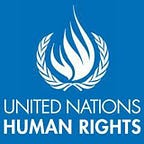“I fight for the most vulnerable.”
Aneta Genova Mircheva doesn’t think of herself as a human rights defender. Yet the lawyer and former judge does just that as she fights to secure equality, inclusion and justice for those with mental disabilities in Bulgaria.
Aneta Genova doesn’t see herself as a human rights defender.
“I see my role is to follow people, and see how I can help somebody who is in a very vulnerable position and understand what he or she needs and how the law can protect his or her rights,” she said.
Yet during much of her working life, Genova has been standing up for human rights. As a judge and a lawyer, she worked on cases involving domestic violence and gender-based violence, advocating for better legal assistance for victims.
“I see myself as a facilitator between the law versus their rights, and I try to better their lives somehow,” Genova said.
Fighting for the most vulnerable
It was during this legal work that she saw the horrific conditions many of those with mental disabilities were forced to live in. During one case, she was called to visit a woman who was living in a mental health facility. They had a conversation that led to talk about art and poetry and Genova said she was struck by the poignancy of the life of someone with such a spirit being kept in such a dull, cold place.
“It was so impossible to see so clever a person in that situation. It is a pity for the human spirit. It is not honest to be locked in that way,” she said.
This epiphany eventually led Genova to working with Validity. For 17 years, Validity has used the law to secure equality inclusion and justice for people with mental disabilities. Working in several countries across Europe and Africa, the NGO has managed to bring successful cases on behalf of victims of torture with mental disabilities. They are supported by the UN Voluntary Fund for Victims of Torture.
As part of Validity’s team in Bulgaria, Genova works to help achieve legislative changes in the country to improve the rights of those with mental disabilities. For example, she recently worked on the draft proposal for a law that would replace the current guardianship system in Bulgaria with one of supported decision-making. The system of guardianship, where someone with a mental disability can be placed in a care facility without their input or consent, is still prevalent in Bulgaria.
A bittersweet victory
Genova also worked on landmark cases that brought the plight of those with mental disabilities and their treatment to the European Court of Human Rights, including Stanev v. Bulgaria. Rusi Stanev placed under a guardianship order behind his back and in 2002 was placed in the custody of a mental health institution. A guardianship order effectively renders someone a “non-person” before the law.
For a decade, Genova represented Stanev, with the national authorities and eventually helping take the case to the Court. The ruling, issued in 2012, changed European law. It was the first time the Court found that the right to be free from torture and ill-treatment had been violated in a disability case. It also led to Bulgaria ratifying the UN Convention on the Rights of Persons with Disabilities.
For Genova the victory was bittersweet. Stanev died, still under a guardianship order and despite the change in the law, the fight for the rights of those with mental health disabilities is still daunting.
“It took me many years to recognize the victory behind the case, because in Bulgaria, it was not recognized well,” she said. “But however, there are changes in Bulgaria. They are small, small, small, but they are there.”
Genova said this space for NGOs and others to discuss and advocate for mental health and disability rights issues can expand, but mainly if more people come to understand the kind of damage being placed in mental health institutions can enact on people.
“Sometimes, people justify what has happened to victims because there is something wrong with them, according to their prejudice, and this is just not true,” she said. “When people understand, they become active and I can see them beginning to value human rights.”
Support human rights defenders like Aneta and learn how to #standup4humanrights by joining our campaign.
